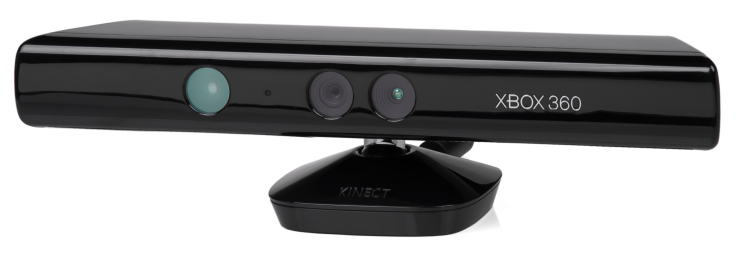Xbox 360 Kinect For Spying? British Intelligence Considered Utilizing The Camera For Home Surveillance
Recent documents reveal a new initiative that spied on Yahoo chat users from 2008 to 2010.

Did you play an Xbox 360 between 2008 and 2010? Big Brother was almost watching you. Documents revealed by U.S. whistleblower Edward Snowden, 30, suggest British surveillance agency Government Communications Headquarters (GCHQ), along with the National Security Agency, considered using Microsoft’s Xbox 360 Kinect camera to spy on users. The files were dated between 2008 and 2010, when a surveillance initiative called Optic Nerve collected photos of online users through Yahoo’s webcam chat service.

Aptly named after the part of the eye that transmits visual data from the retina to the brain, Optic Nerve intercepted and filed away webcam images of millions of online users, according to leaked documents. The documents stated millions of images were stored via Yahoo webcams to agency databases, even if individuals weren’t suspected of legal wrongdoing.
In one six-month timeframe during 2008, the agency allegedly collected images from more than 1.8 million Yahoo users around the world, reported the Guardian. Webcams would take photos every five minutes and send the images to the GCHQ database.
“The system, eerily reminiscent of the telescreens evoked in George Orwell's ‘1984,’ was used for experiments in automated facial recognition, to monitor GCHQ's existing targets, and to discover new targets of interest. Such searches could be used to try to find terror suspects or criminals making use of multiple, anonymous user IDs,” reported the Guardian.

Of course, this system wasn’t without its flaws. The agency also captured a large amount of photos that contained material of a sexual nature. GCHQ made no effort to prevent the collection or storage of such images, but did attempt to exclude photos where no faces were digitally recognized – a meager attempt to hide the lewd shots from professional analysts.
This news comes months after previous shady efforts of British and U.S. intelligence agencies were revealed publicly via Snowden’s leaked documents.
Last December, Snowden disclosed documents to the Guardian that gave a detailed history of the agency's surveillance on gaming activities. The NSA documents stated that British and American intelligence organizations forcibly spied on online activity through Xbox Live, the virtual world “Second Life” and the popular MMO “World of Warcraft” since 2006.
The leaked documents admitted that the agencies not only infiltrated specific online games, but actually created individual mobile games specifically for the purpose of gathering data about players. According to the New York Times, the Pentagon’s Special Operations Command built mobile games that were used as “vehicles for intelligence agencies to collect information about the users.” The article also gave a history of the seven years that multiple U.S. and international government agencies surveyed gamers’ activities. The agencies saw online gaming as a convenient way for criminals and terrorists to communicate with one another in a private manner. They also felt that an online forum could be a “target-rich communication network.”
The NSA also spied on Facebook, Google, Yahoo and Twitter activity with the help of intelligence system PRISM, a software program used to examine data like emails, videos and online chats. Industry experts predicted the tech mega giants could lose billions of dollars over the next several years if clients and consumers decide to employ alternative services that don’t violate their privacy. Many Internet companies alerted Congress of this possibility, calling for President Obama to take another look at the government's surveillance activities.
In January, more documents revealed the NSA and GCHQ were also tapping well-known smartphone apps and games like Rovio’s “Angry Birds” to peer into the vast collection of personal data compiled by the software from its users. Data includes personal details such as age, location, gender and even sexual preferences, reported the New York Times. Various reports detailed attempts to amass large amounts of personal information from users via cell phone carriers and smartphones by utilizing “leaky” apps.
“When a smartphone user opens 'Angry Birds,' the popular game application, and starts slinging birds at chortling green pigs, spies could be lurking in the background to snatch data revealing the player’s location, age, sex and other personal information,” the New York Times reported on Jan. 27. “The N.S.A. and Britain’s Government Communications Headquarters were working together on how to collect and store data from dozens of smartphone apps by 2007, according to the documents, provided by Edward J. Snowden.”
Earlier this January, President Obama acknowledged that the electronic invasion of privacy posed a threat to the civil liberties of Americans and announced major changes to the manner in which the government finds and uses telephone records. “America’s capabilities are unique,” President Obama said in a speech at the Justice Department on Jan. 17. “And the power of new technologies means that there are fewer and fewer technical constraints on what we can do. That places a special obligation on us to ask tough questions about what we should do.”
© Copyright IBTimes 2024. All rights reserved.






















